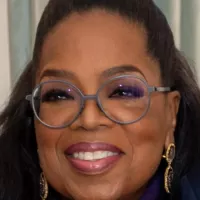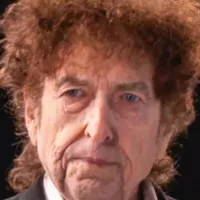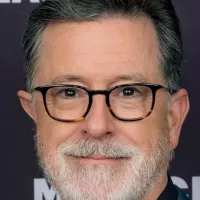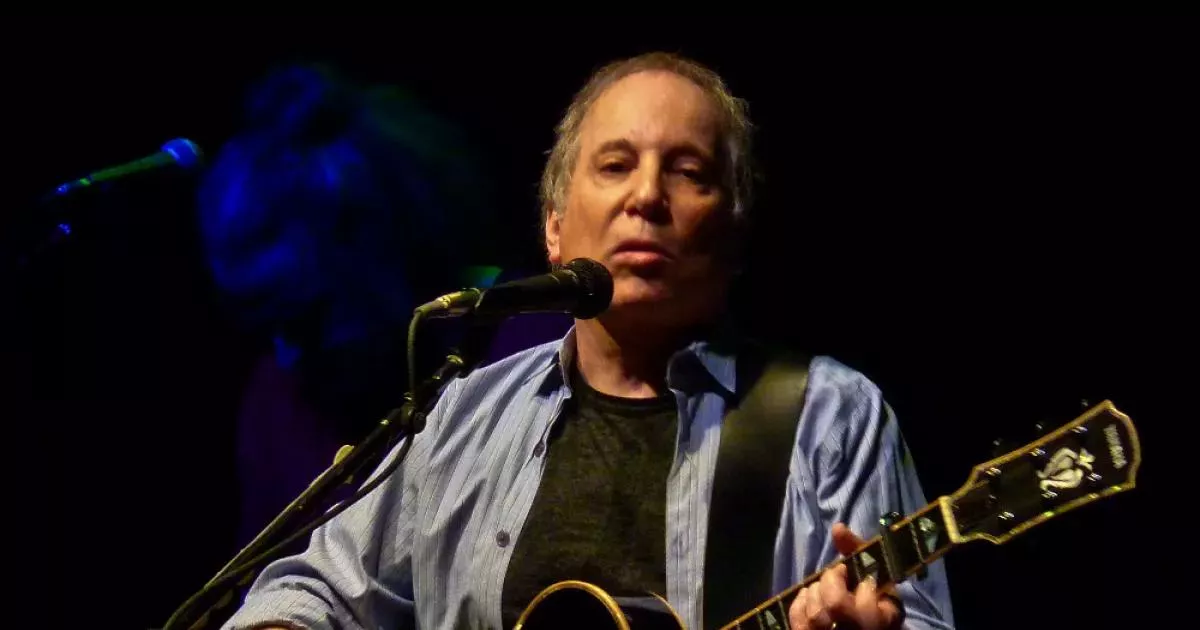Paul Simon is an influential American singer-songwriter, most famously known as one half of the duo Simon & Garfunkel. Rising to prominence in the 1960s, they created a distinctive folk-rock sound with iconic songs like "The Sound of Silence" and "Mrs. Robinson," which resonated with the counterculture movement. Their final album, Bridge over Troubled Water, achieved massive commercial success and remains a landmark in music history. Simon later pursued a successful solo career, further solidifying his legacy as a prominent figure in popular music.
1959: Events of The Capeman
In 1959, Salvador Agron committed two murders, the subject of the musical "The Capeman".
1964: Met Kathleen Mary "Kathy" Chitty
In 1964, Paul Simon met Kathleen Mary "Kathy" Chitty at the Railway Inn Folk Club in Brentwood, Essex, where she worked. They started a relationship when she was 16 and he was 22.
1964: Start of Compilation "Paul Simon 1964/1993"
In 1964, marks the beginning of the timeline for the compilation album "Paul Simon 1964/1993"
1965: Photo of Simon and Kathy on The Paul Simon Songbook album cover
In 1965, a photo of Paul Simon and Kathy together appeared on the cover of Simon's album The Paul Simon Songbook.
1969: Married Peggy Harper
In 1969, Paul Simon married Peggy Harper.
1970: Release of Bridge Over Troubled Water Album
In 1970, Simon & Garfunkel released "Bridge over Troubled Water", their last album of new material until their attempted reunion.
1970: Held auditions for a young songwriters' workshop
In 1970, after recording "Bridge Over Troubled Water", Paul Simon held auditions for a young songwriters' workshop at NYU's Tisch School of the Arts, selecting six teenage songwriters for tutelage. Melissa Manchester and Maggie and Terre Roche were among them.
1972: Son Harper Simon was born
In 1972, Paul Simon and Peggy Harper had a son, Harper Simon.
1972: Beginning of timeline for re-released studio albums
In 1972, is the beginning year for Paul Simon's re-released studio albums in 2004 as a limited-edition boxed set.
1973: Release of Song "Something So Right"
In 1973, Paul Simon released the song "Something So Right", later covered by Annie Lennox in 1995.
1973: Founded the Guitar Study Center
Sometime before 1973, Paul Simon and his brother Eddie Simon founded the Guitar Study Center.
1975: Divorced Peggy Harper
In 1975, Paul Simon divorced Peggy Harper, inspiring the song "50 Ways to Leave Your Lover".
1975: Last Duo Single Before Hiatus
In 1975, prior to reuniting in Central Park, Simon & Garfunkel released "My Little Town". This would be their last original single as a duo for several years.
1976: Met Shelley Duvall while filming Annie Hall
In 1976, Paul Simon met actress Shelley Duvall while filming Annie Hall, and they began living together as a couple for two years.
1977: "Slip Slidin' Away" appeared on Greatest Hits, Etc.
In 1977, the song "Slip Slidin' Away" by Paul Simon first appeared on the compilation album Greatest Hits, Etc.
1978: Began dating Carrie Fisher
In 1978, Paul Simon began dating actress Carrie Fisher after being introduced by Shelley Duvall.
1980: Release of One-Trick Pony album and film
In 1980, Paul Simon released "One-Trick Pony", his first album with Warner Bros. Records after almost five years and also wrote and starred in the motion picture of the same name. The album contained the song "Late in the Evening", but the album did not sell well.
1981: Simon & Garfunkel Concert in Central Park
In 1981, Simon & Garfunkel performed a concert in Central Park on September 19, including eight songs from Simon's solo career in the set list. Five songs were rearranged as duets, and the resulting live album, TV special, and videocassette releases were major hits.
1983: Release of Hearts and Bones Album
In 1983, Paul Simon released the album "Hearts and Bones" as a solo album after wiping Art Garfunkel's vocals. Though considered one of his best works, the album achieved the lowest sales of his career and included "The Late Great Johnny Ace".
1983: Wrote about Peggy Harper in Train in the Distance
In 1983, Paul Simon wrote about his relationship with Peggy Harper in the song "Train in the Distance" from his album Hearts and Bones.
January 1985: Performance for USA for Africa
In January 1985, Paul Simon performed for USA for Africa and on the relief fundraising single "We Are the World", contributing to the cause.
1986: Honorary Degree from Berklee College of Music
In 1986, Paul Simon received an Honorary Doctor of Music degree from Berklee College of Music, where he had previously served on the board of trustees, recognizing his contributions to music.
1986: Recording in Johannesburg and Collaboration
In 1986, Paul Simon traveled to Johannesburg to record an album of South African music after hearing a bootlegged tape of mbaqanga. He recorded with African musicians and also collaborated with American artists, including Linda Ronstadt and Los Lobos. He also contributed to "We Are the World".
January 1987: Removal from United Nations Blacklist
In January 1987, Paul Simon was removed from the United Nations blacklist, following controversy over his recording of the Graceland album and alleged violation of the cultural boycott against the apartheid regime in South Africa.
1987: Graceland wins Grammy Award
In 1987, Paul Simon's album "Graceland" won the Grammy for Album of the Year, marking a significant achievement in his career.
1988: "Slip Slidin' Away" included in subsequent compilation albums
In 1988, the song "Slip Slidin' Away" by Paul Simon was included in subsequent compilation albums such as Negotiations and Love Songs.
December 1989: Start of Sessions for The Rhythm of the Saints
In December 1989, sessions began in Rio de Janeiro and New York for Paul Simon's album "The Rhythm of the Saints".
1989: Appearance on Dion's Song
In 1989, Paul Simon appeared on Dion's song "Written on the Subway Wall"/"Little Star" from the album Yo Frankie.
October 1990: Peak of Dion's song
In October 1990, Dion's song "Written on the Subway Wall"/"Little Star" from Yo Frankie peaked at number 97.
October 1990: Release of The Rhythm of the Saints
In October 1990, Paul Simon released "The Rhythm of the Saints", which received excellent reviews and sold well, becoming his last Top 20 hit in the UK with the lead single "The Obvious Child".
1990: Induction into the Rock and Roll Hall of Fame with Simon & Garfunkel
In 1990, Paul Simon was inducted into the Rock and Roll Hall of Fame as a member of Simon & Garfunkel, marking a significant career milestone.
1990: Induction into the Rock and Roll Hall of Fame
In 1990, Simon and Garfunkel were inducted into the Rock and Roll Hall of Fame.
August 15, 1991: Concert in Central Park with African and South American Bands
On August 15, 1991, Paul Simon staged a second concert in Central Park with African and South American bands, attracting over 750,000 people, leading to a live album and an Emmy-winning TV special.
March 4, 1992: Performance on MTV Unplugged
On March 4, 1992, Paul Simon performed in his own episode of MTV Unplugged.
May 30, 1992: Married Edie Brickell
On May 30, 1992, Paul Simon married singer Edie Brickell.
September 1993: Simon & Garfunkel Reunion and Compilation Release
In September 1993, Simon & Garfunkel reunited and Columbia released "Paul Simon 1964/1993", a three-disc compilation that was later reduced to a two-disc album named "The Paul Simon Anthology".
1995: Appearance on The Oprah Winfrey Show and Feature on Annie Lennox song
In 1995, Paul Simon appeared on The Oprah Winfrey Show and performed the song "Ten Years". He also featured in the Annie Lennox version of his 1973 song "Something So Right".
November 1997: Release of Songs from The Capeman
In November 1997, Paul Simon released an album of songs from his musical, "The Capeman", which received mixed reviews and failed to reach the Top 40 of the Billboard charts.
January 29, 1998: Opening of The Capeman
On January 29, 1998, Paul Simon's musical "The Capeman" officially opened. It told the story of Salvador Agron, who committed two murders in 1959 and became a writer while in prison.
1999: North American Tour with Bob Dylan
In 1999, Paul Simon embarked on a three-month North American tour with Bob Dylan, alternating as the headline act.
2000: Release of You're the One Album
In 2000, Paul Simon released the album "You're the One", consisting mostly of folk-pop writing combined with foreign musical sounds, which received favorable reviews and a Grammy nomination for Album of the Year.
2000: End of timeline for re-released studio albums
In 2000, is the ending year for Paul Simon's re-released studio albums in 2004 as a limited-edition boxed set.
2001: Inspiration from turning 60
In 2001, Paul Simon turned 60, which served as an inspiration for his album "Surprise", particularly the song "Old" from "You're the One".
2001: Honored as MusiCares Person of the Year
In 2001, Paul Simon was honored as MusiCares Person of the Year.
2001: Induction into the Rock and Roll Hall of Fame for solo career
In 2001, Paul Simon was inducted into the Rock and Roll Hall of Fame for his solo career, solidifying his impact as a solo artist.
2002: Recipient of the Kennedy Center Honors
In 2002, Paul Simon was one of five recipients of the annual Kennedy Center Honors, the nation's highest tribute to performing and cultural artists.
2002: Writing and Recording of "Father and Daughter"
In 2002, Paul Simon wrote and recorded "Father and Daughter", the theme song for the animated family film "The Wild Thornberrys Movie". The track was later nominated for an Academy Award for Best Song.
2002: Guitar Study Center Became part of The New School
Sometime before 2002, The Guitar Study Center became part of The New School in New York City.
2003: Supported Little Kids Rock
In 2003, Paul Simon became a supporter of Little Kids Rock, a nonprofit providing musical instruments and lessons to children in public schools. He is also on the board of directors as an honorary member.
2003: Grammy Lifetime Achievement Award and US Tour
In 2003, Simon and Garfunkel performed together again when they received a Grammy Lifetime Achievement Award, which led to a US tour, the acclaimed "Old Friends" concert series.
March 2004: Publication of Howling at the Moon
In March 2004, Walter Yetnikoff published "Howling at the Moon", criticizing Paul Simon and his previous business partnership with Columbia Records.
2004: Re-release of Studio Albums
In 2004, Paul Simon's studio albums were re-released both individually and as part of a limited-edition boxed set titled "Paul Simon: The Studio Recordings 1972–2000".
2004: International Encore Tour
In 2004, Simon & Garfunkel continued their reunion tour with an international encore, culminating in a free concert at the Colosseum in Rome.
2005: Honored at the 53rd Annual BMI Pop Awards
In 2005, Paul Simon was honored at the 53rd Annual BMI Pop Awards for his songwriting catalog, which earned 39 BMI Awards. His songs such as "Bridge over Troubled Water", "Mrs. Robinson", "Scarborough Fair" and "The Sound of Silence" received numerous citations. By this time, he had amassed nearly 75 million broadcast airplays, according to BMI surveys.
2005: Performance at the Concert for New Orleans
In 2005, Simon and Garfunkel performed together at the benefit concert From the Big Apple to The Big Easy – The Concert for New Orleans for Hurricane Katrina victims, singing "Mrs. Robinson", "Homeward Bound", and "Bridge Over Troubled Water".
May 2006: Release of Surprise Album
In May 2006, Paul Simon released "Surprise", an album inspired by the September 11 terrorist attacks, the Iraq invasion, and turning 60. The album was commercially successful.
2006: Named one of the "100 People Who Shaped the World" by Time
In 2006, Paul Simon was recognized by Time as one of the "100 People Who Shaped the World", highlighting his cultural influence.
2006: Selected as one of the "100 People Who Shaped the World" by Time Magazine
In 2006, Paul Simon was selected by Time Magazine as one of the "100 People Who Shaped the World", acknowledging his influence and impact.
2006: "Graceland" Added to National Recording Registry
In 2006, Paul Simon's album "Graceland" was added to the United States' National Recording Registry for being culturally, historically, and aesthetically important.
2007: Recipient of the Library of Congress's Gershwin Prize for Popular Song
In 2007, Paul Simon became the first recipient of the Library of Congress's Gershwin Prize for Popular Song, an award recognizing the profound and positive effect of popular music on the world's culture.
2007: Recipient of the Gershwin Prize for Popular Song
In 2007, Paul Simon was the inaugural recipient of the Gershwin Prize for Popular Song, awarded by the Library of Congress.
February 2009: Shows at the Beacon Theatre with Art Garfunkel and The Capeman Cast
In February 2009, Paul Simon performed back-to-back shows in New York City at the Beacon Theatre, joined by Art Garfunkel and the cast of "The Capeman" in the first show.
May 2009: Tour with Garfunkel in Australia, New Zealand and Japan
In May 2009, Paul Simon toured with Art Garfunkel in Australia, New Zealand and Japan, continuing their reunion.
October 2009: Appearance at the Rock and Roll Hall of Fame Concert
In October 2009, Paul Simon and Art Garfunkel appeared together at the 25th anniversary of the Rock and Roll Hall of Fame concert at Madison Square Garden in New York City. Dion performed with Simon at the concert as well.
April 2010: Performance at the New Orleans Jazz & Heritage Festival
In April 2010, Simon & Garfunkel performed together again at the New Orleans Jazz & Heritage Festival.
2010: Move of Solo Catalog to Sony/Columbia Records
In mid-2010, Paul Simon moved his catalog of solo work from Warner Bros. Records to Sony/Columbia Records, which already held the Simon & Garfunkel catalog.
2011: Named one of the 100 greatest guitarists by Rolling Stone
In 2011, Paul Simon was named one of the 100 greatest guitarists by Rolling Stone, acknowledging his guitar skills.
May 2012: Performed at a benefit dinner for the Turkana Basin Institute
In May 2012, Paul Simon performed at a benefit dinner for the Turkana Basin Institute in New York City, raising over $2 million for Richard Leakey's research institute in Africa.
2012: Awarded the Polar Music Prize
In 2012, Paul Simon was awarded the Polar Music Prize, an international award given in recognition of exceptional achievements in music.
April 26, 2014: Involved in a domestic dispute with Edie Brickell
On April 26, 2014, Paul Simon and Edie Brickell were involved in a domestic dispute, and each received a summons to appear in court on disorderly conduct charges.
2015: Ranked 8th in Rolling Stone's list of the 100 Greatest Songwriters of All Time
In 2015, Paul Simon was ranked 8th in Rolling Stone's list of the 100 Greatest Songwriters of All Time, celebrating his songwriting prowess.
2019: Donated fee from Outside Lands Music and Arts Festival performance
For his 2019 performance at San Francisco's Outside Lands Music and Arts Festival, Paul Simon donated his appearance fee to the San Francisco Parks Alliance and Friends of the Urban Forest.
2023: Ranked the 246th greatest guitarist of all time by Rolling Stone
In 2023, Paul Simon was ranked the 246th greatest guitarist of all time by Rolling Stone.
Mentioned in this timeline

Oprah Winfrey is an influential American talk show host television...

Bob Dylan is a highly influential American singer-songwriter renowned as...
Saturday Night Live SNL is a late-night live sketch comedy...
The Kennedy Center Honors are annual awards recognizing individuals and...

Sony is a Japanese multinational conglomerate based in Tokyo Its...

Stephen Colbert is an American comedian writer producer political commentator...
Trending
49 minutes ago Tim NeCastro Announces Retirement as Erie Insurance CEO After 10 Years

3 hours ago Apple MacBook Pro: Touchscreen, Dynamic Island, and New Interface Coming Soon.

3 hours ago Microsoft and SpaceX Starlink Partner to Empower Global Community Internet and AI Economy
49 minutes ago Trump Announces Energy Deals and Rate Payer Protection Pledges at SOTU
3 hours ago Whitefox & Fluid Quip collaborate; Low-carbon ethanol boosted; Indoor plants aid climate resilience.

2 hours ago Ethereum Price Faces Resistance at $1,950 Amidst Market Repricing Concerns.
Popular

Jesse Jackson is an American civil rights activist politician and...

Susan Rice is an American diplomat and public official prominent...

Barack Obama the th U S President - was the...

Michael Joseph Jackson the King of Pop was a highly...

XXXTentacion born Jahseh Dwayne Ricardo Onfroy was a controversial yet...

Bernie Sanders is a prominent American politician currently serving as...

